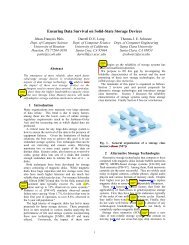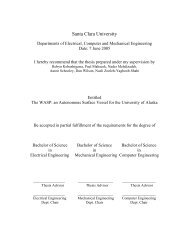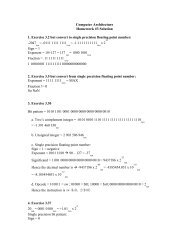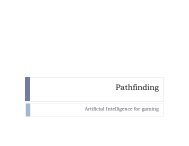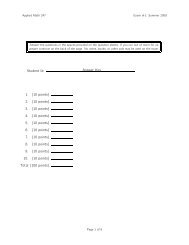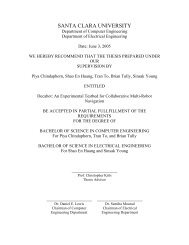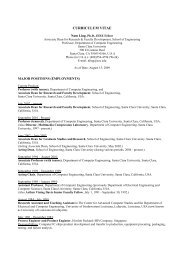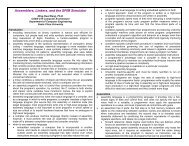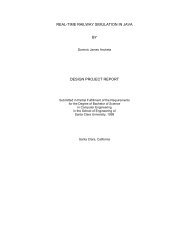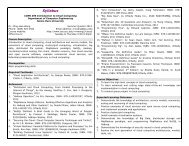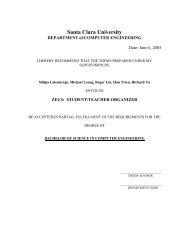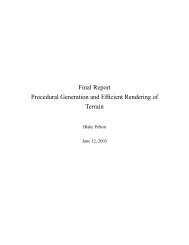Issues in Computer Forensics
Issues in Computer Forensics
Issues in Computer Forensics
You also want an ePaper? Increase the reach of your titles
YUMPU automatically turns print PDFs into web optimized ePapers that Google loves.
that person must have access to the property. Typically, a spouse or significant<br />
other is considered to have access to all property <strong>in</strong> the household.<br />
The second exception <strong>in</strong>volves private searches. “The Fourth Amendment<br />
does not apply to searches conducted by private parties who are not act<strong>in</strong>g as<br />
agent of the government.” 38 When the person perform<strong>in</strong>g the search has no<br />
orig<strong>in</strong>al <strong>in</strong>tention of <strong>in</strong>vestigat<strong>in</strong>g crim<strong>in</strong>al activities lead<strong>in</strong>g to prosecution, and<br />
that person does not work the government, then that search can be considered a<br />
private search. In the above case, the search was performed with the <strong>in</strong>tent to<br />
delete files, and the <strong>in</strong>crim<strong>in</strong>at<strong>in</strong>g evidence was accidentally discovered.<br />
Another important exception to the warrant requirement <strong>in</strong>volves<br />
<strong>in</strong>formation <strong>in</strong> pla<strong>in</strong> view. In this case “the agent must be <strong>in</strong> a lawful position to<br />
observe and access the evidence, and its <strong>in</strong>crim<strong>in</strong>at<strong>in</strong>g character must be<br />
immediately apparent.” 39 Included <strong>in</strong> this exception is <strong>in</strong>formation obta<strong>in</strong>ed by<br />
peer<strong>in</strong>g over a suspect’s shoulder. Additionally, when an <strong>in</strong>vestigator is<br />
exam<strong>in</strong><strong>in</strong>g a computer for evidence related to one crime, but f<strong>in</strong>ds evidence of<br />
another crime, it is unlawful for the detective to switch the focus of his/her search<br />
and look primarily for evidence of the second type. For example, <strong>in</strong> United States<br />
v. Carey, a detective search<strong>in</strong>g for drug evidence opened a JPG conta<strong>in</strong><strong>in</strong>g child<br />
pornography. The detective then “spent five hours access<strong>in</strong>g and download<strong>in</strong>g<br />
several hundred ‘jpg’ files <strong>in</strong> a search not for evidence of the narcotics traffick<strong>in</strong>g<br />
that he was authorized to seek and gather pursuant to the orig<strong>in</strong>al warrant, but for<br />
more child pornography.” 40 Only the first file, which came <strong>in</strong>to pla<strong>in</strong> view dur<strong>in</strong>g<br />
another unrelated search, was admissible <strong>in</strong> court. In a very similar case, United<br />
26



